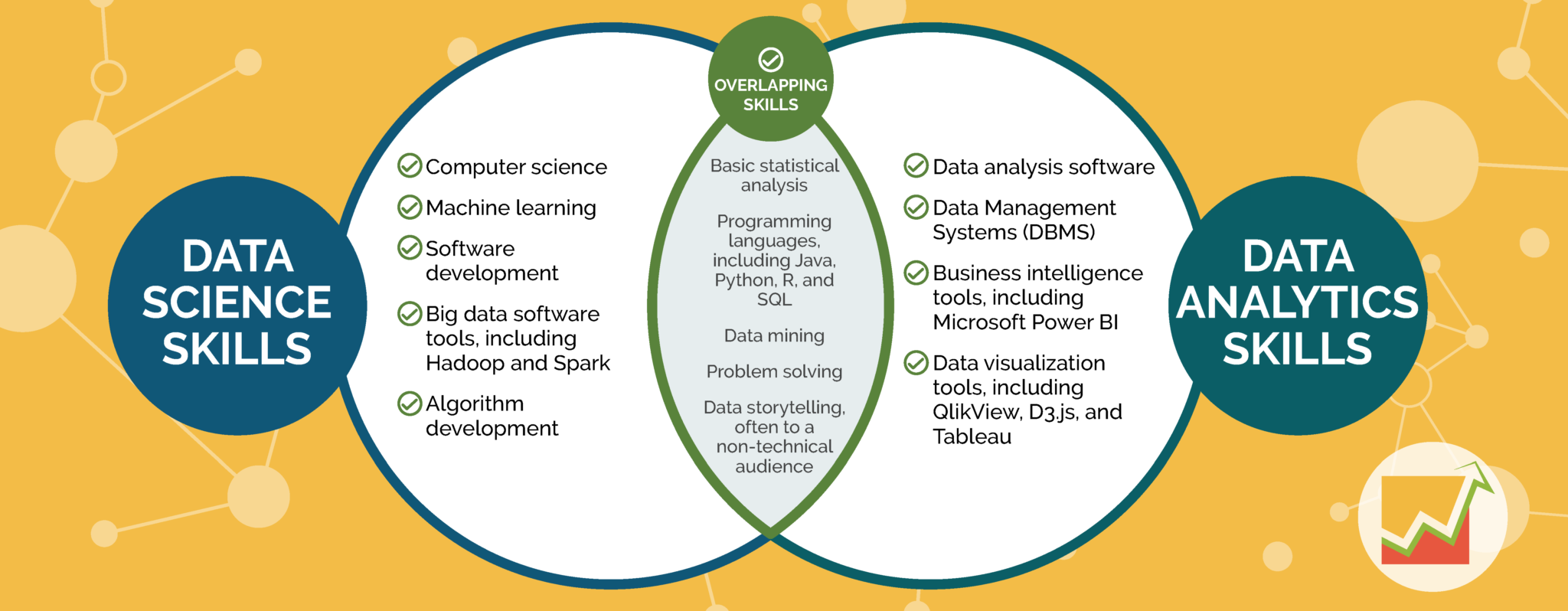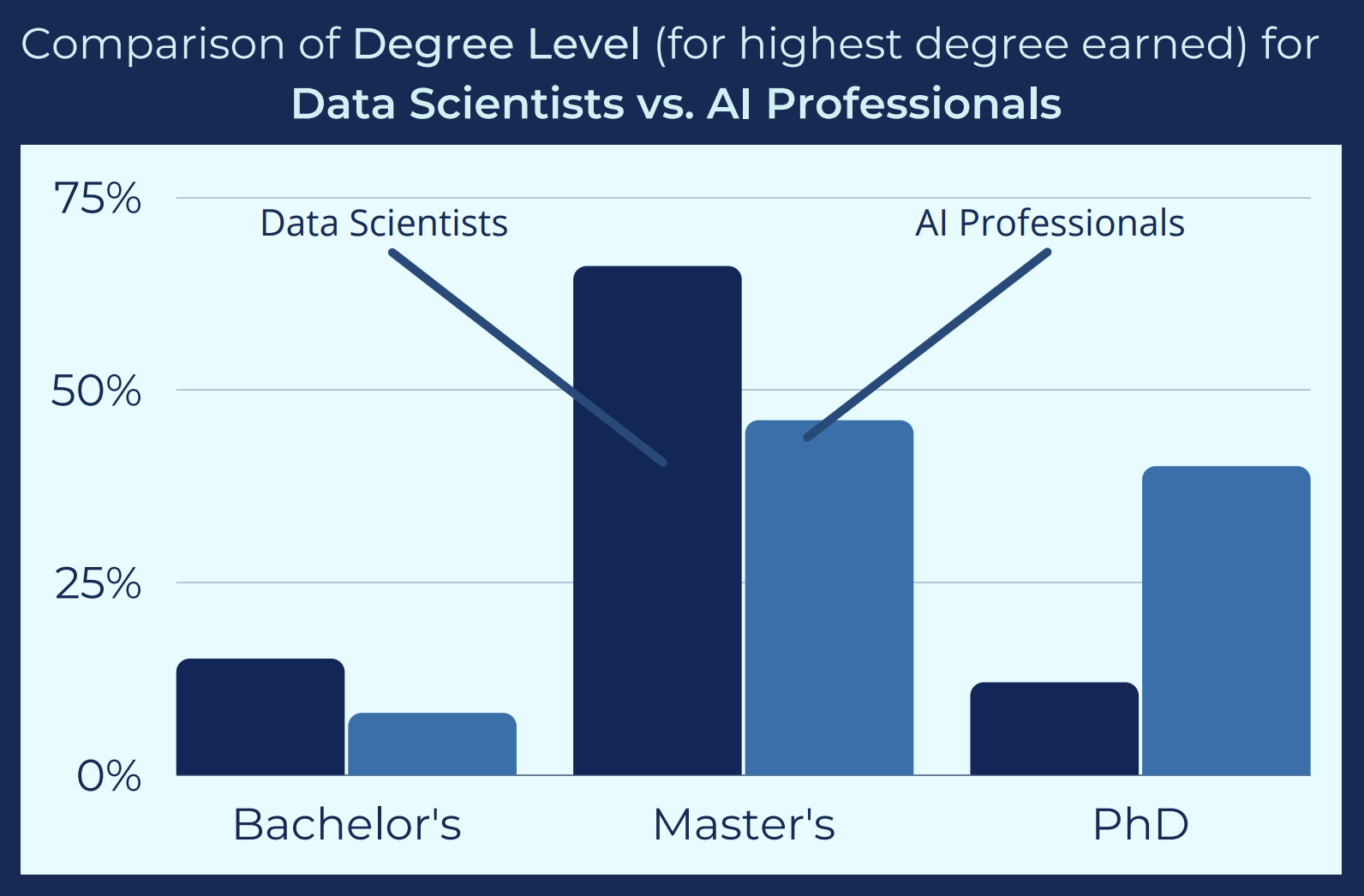If you’ve ever scanned job websites for roles in data, you’ve probably seen listings for data scientists and data analysts accompanied by job descriptions that sound quite similar. While the two fields are interconnected, data science and data analytics vary in scope, responsibilities, and goals.
One overarching similarity is that professionals in both roles use big data to solve problems and create improvements in an organization. The biggest difference, however, is how they interact with data.
Data scientists often work with vast stores of raw data, working as investigators to create ways to analyze and model that data using statistical analysis and heavy coding. The goal of their work is to uncover the questions the data can answer. Data science often lays the foundation for further investigation.
Data analysts leverage the modeling of the data scientist to create actionable and practical insights using a variety of tools. The work of data analytics involves using organized data to apply findings immediately.
Skills and Tools You’ll Need in Data Science and Data Analytics
There are some distinct differences between skills needed for data science and data analytics careers. However, there is also some overlap.

A Deep Dive into Jobs and Responsibilities
When looking at job opportunities, it’s important to not only look at the job title, but also the responsibilities, as the titles can overlap between data science and data analytics.
Some common job titles in the data science field are:
- Data scientist
- Data analyst
- Data architect
- Data mining engineer
- Machine learning engineer
- Hadoop engineer
- Predictive modeler
Data science responsibilities often include: identifying opportunities for investigation, collecting data, predicting trends, cleaning and validating data, and communicating. To learn more about data science careers, read here.
Some common job titles in the data analytics field are:
- Data analyst
- Business analyst
- Database analyst
- Market research analyst
- Operations analyst
- Business intelligence analyst
- Tableau developer
Here are some common data analytics responsibilities: exploratory data analysis, data cleansing, statistical analysis, and developing visualizations.
Get Program Guide
Learn more about our 100% online degree and certificate programs.
Salary Expectations
According to the U.S. Bureau of Labor Statistics, the median annual wage of a data scientist is $100,910. The 2022 Burtch Works Salary Report found that data scientists make on average between $90,000 and $275,000 annually, depending on experience level and managerial responsibilities. According to the same report, analytics professionals (referred to as artificial intelligence professionals in the report) can make between $105,000 and $275,000 on average, also depending on experience level and managerial responsibilities. For a more in-depth look at salary information, visit here.
Educational Advantage
One way to increase your salary is to earn an advanced degree, which is common in both fields. The Burtch Works study found that 93 percent of the data scientists and analytics professionals surveyed held an advanced degree.

The 100 percent online UW Masters in Data Science prepares students for both data science and data analytics roles. Students not only learn technical skills they need to succeed, but they also gain knowledge in effective project management, leadership, and communication.
Want to focus on data analytics? UW Extended Campus offers a virtual Data Analytics Bootcamp that can be completed in just 24 weeks. You will graduate from the program ready to apply your knowledge in the professional world.
Discover
The University of Wisconsin offers an online, 36-credit Master of Science in Data Science degree program. This data science master’s program will teach you how to harness the power of big data using the latest tools and analytical methods. Start your journey today.
Explore
Curious about what you’d learn in UW Data Science courses? See the curriculum.
Ask
Have questions about the UW Data Science program? Contact an adviser at 608-800-6762 or learn@uwex.wisconsin.edu.










